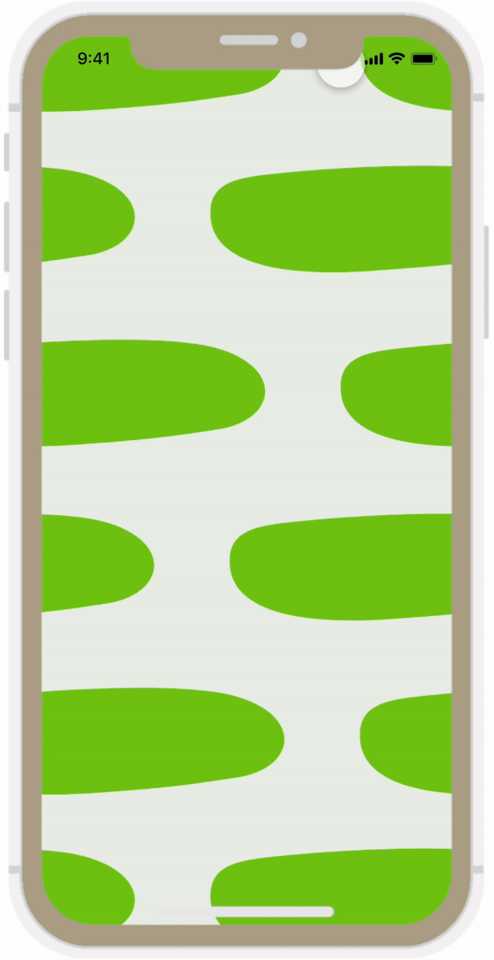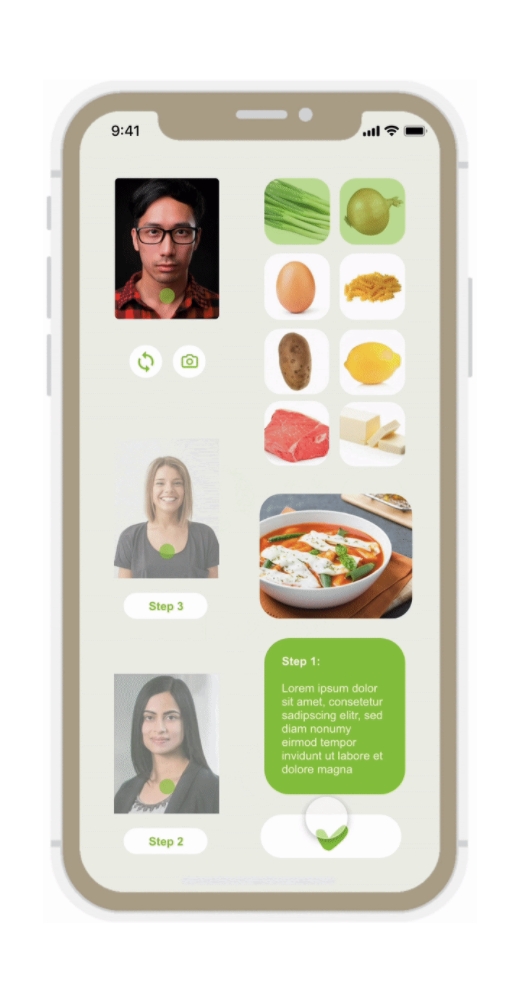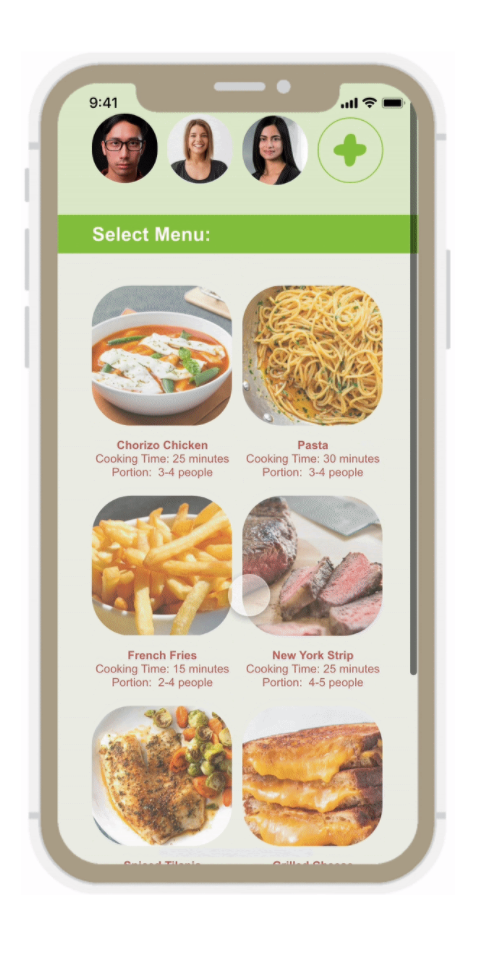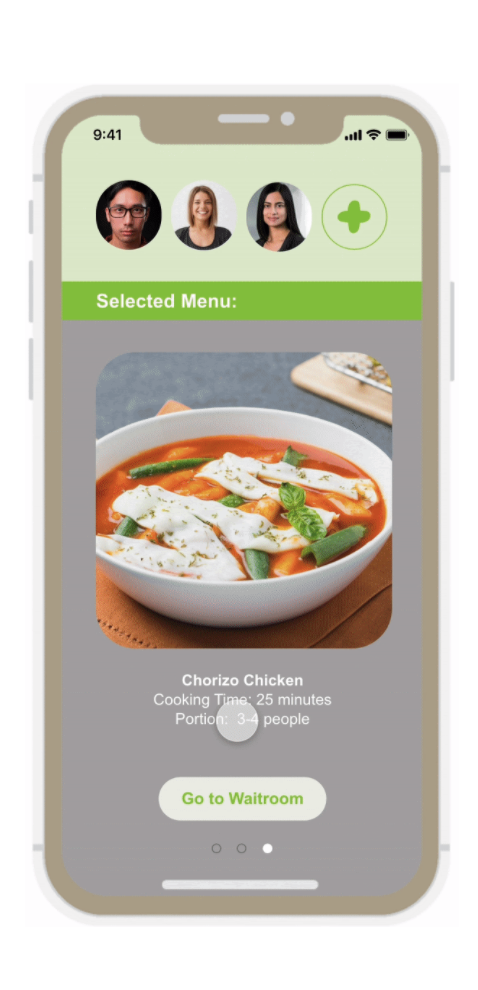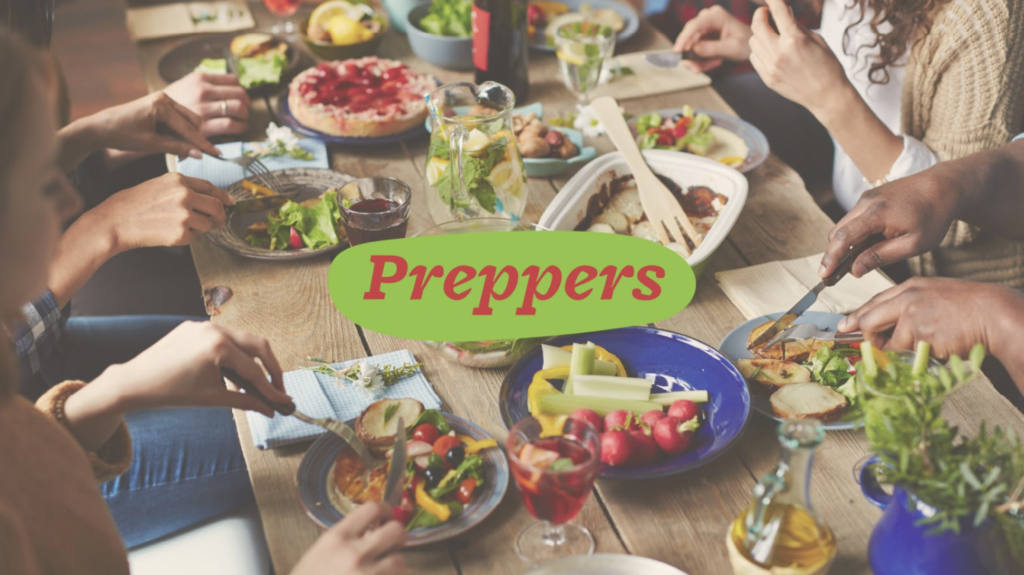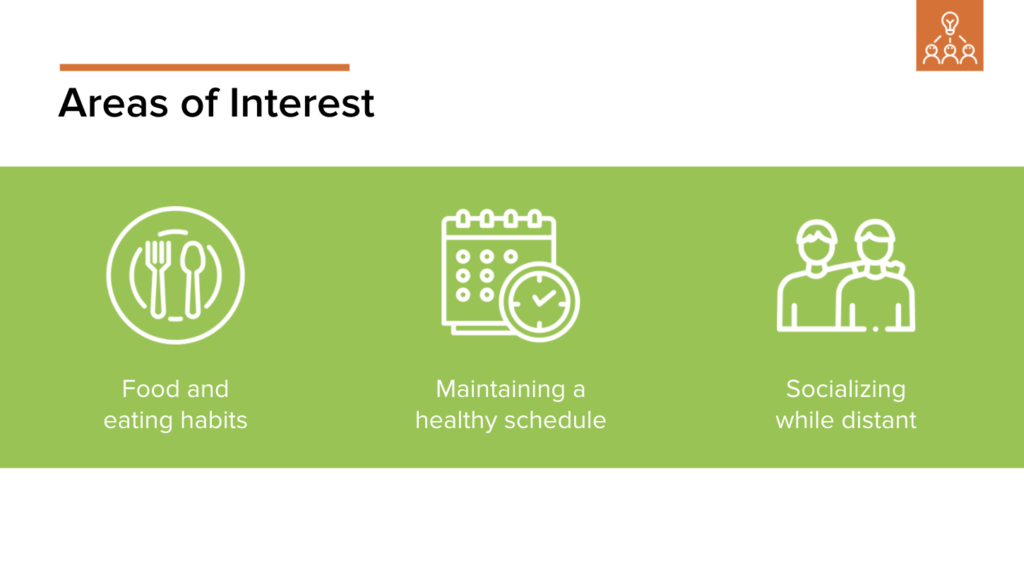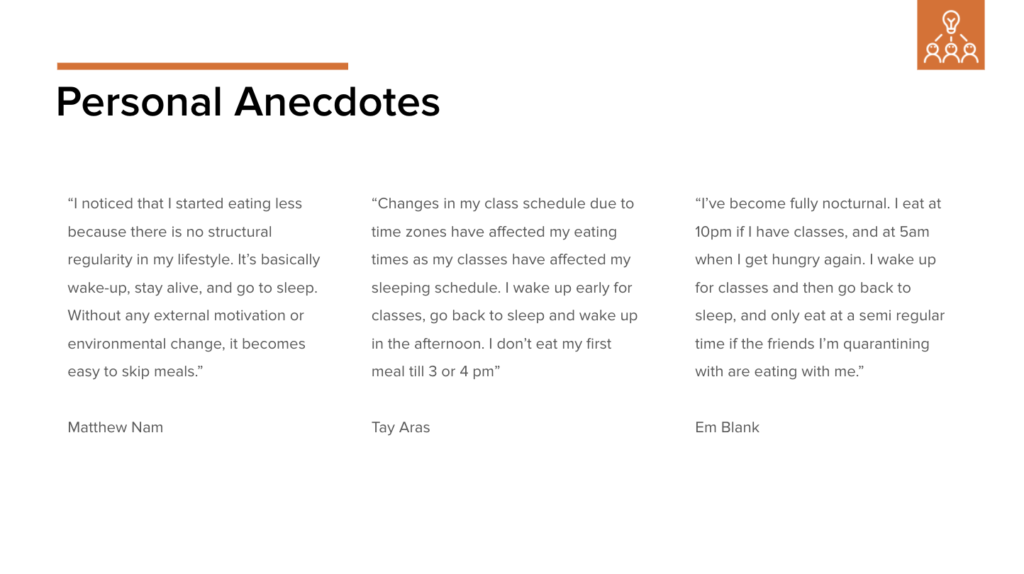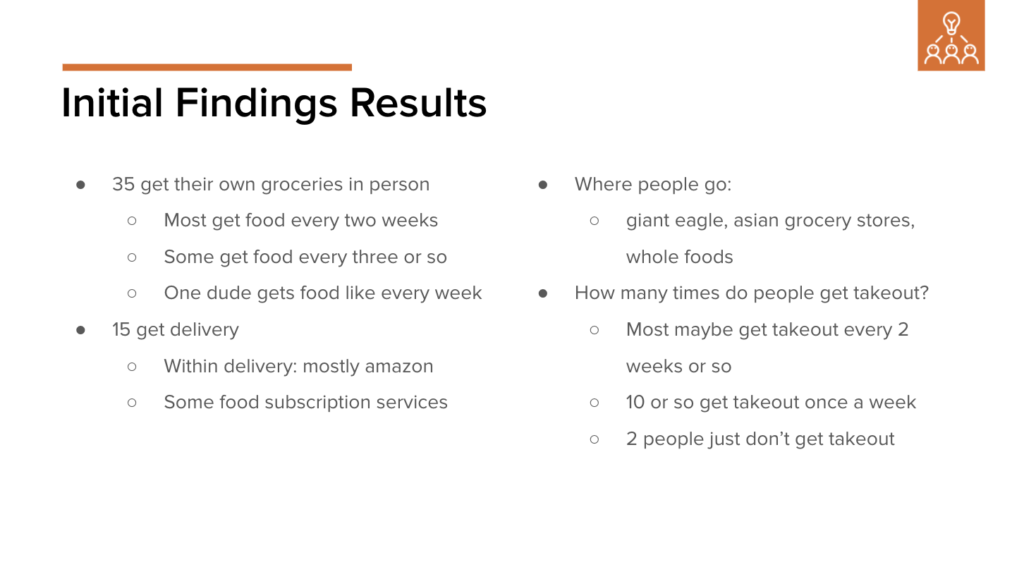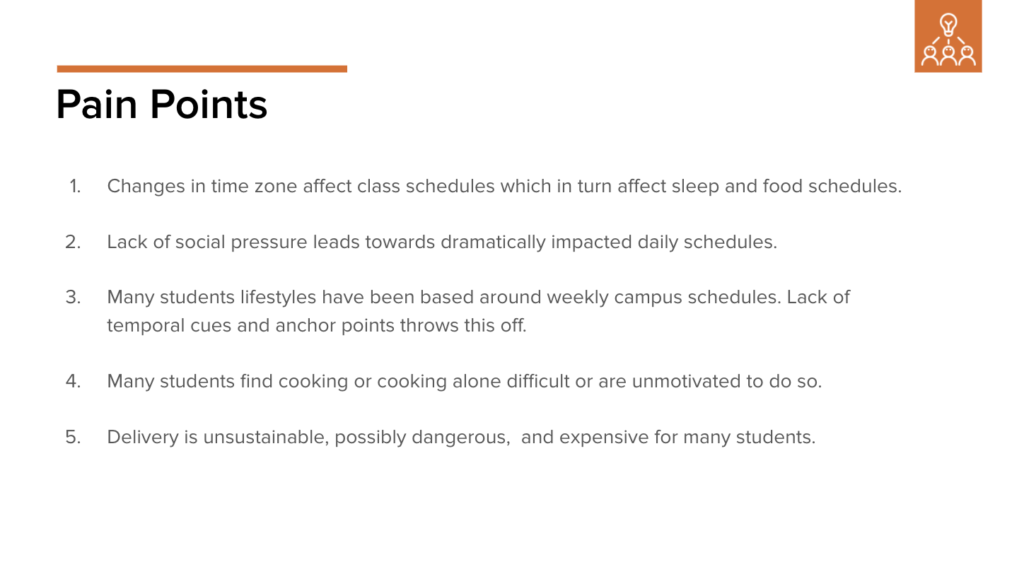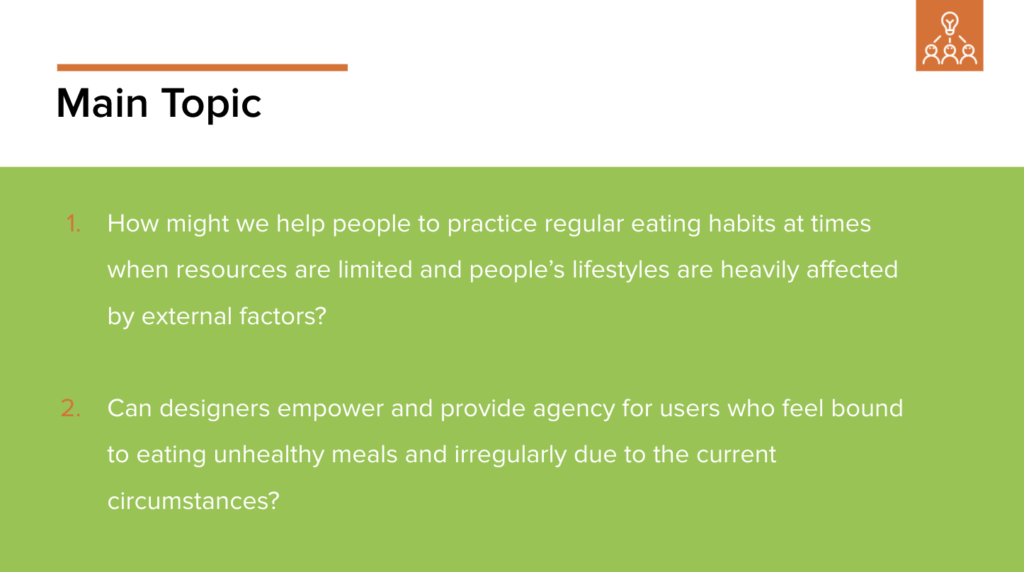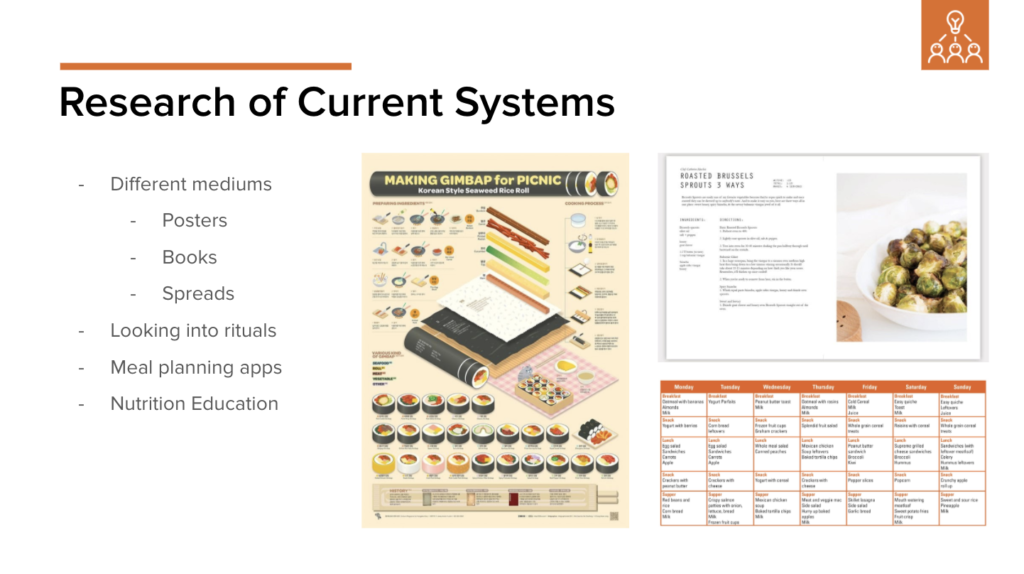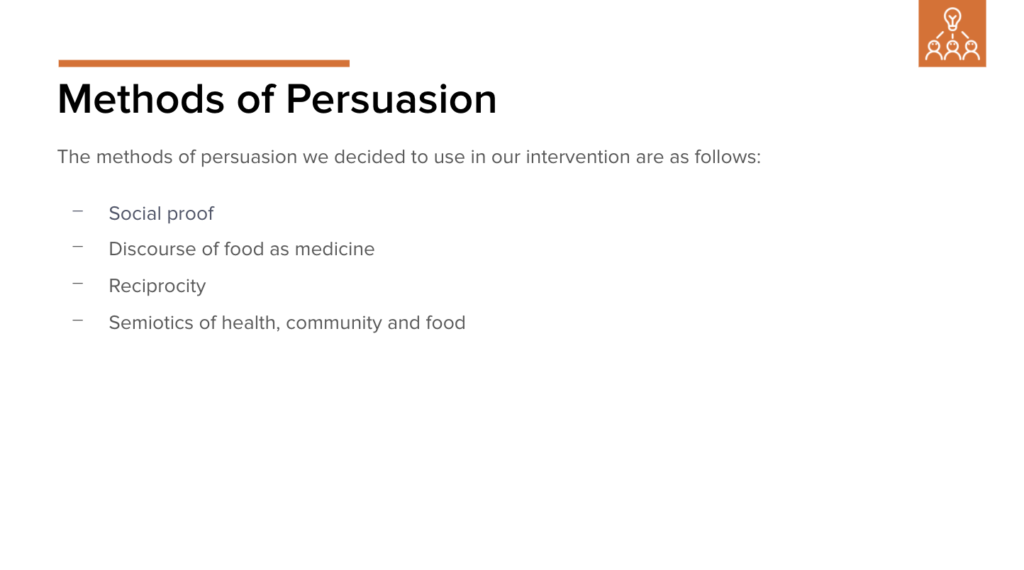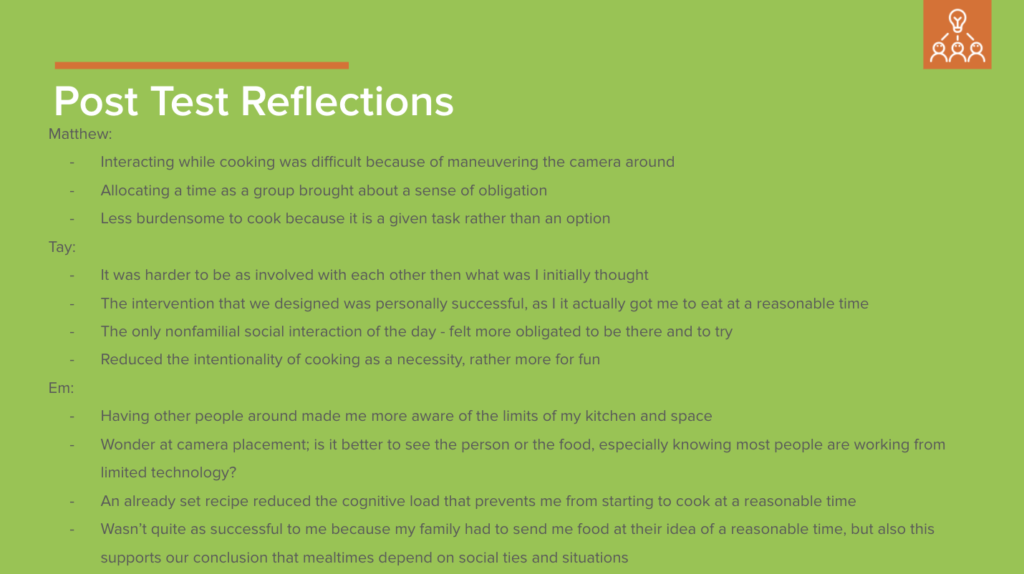How can we maintain healthy eating habits when our schedules and lives have drastically changed?
Group 14: Tay, Matthew, Em
Background/preface:
When we started this project, we talked over a lot of possible ways to intervene in daily life under quarantine, and came to the conclusion that one thing we all were having trouble with was maintaining a healthy schedule. We also recognized that a lot of people in the class are having the same problems and are addressing the same topics, so we decided to focus on a very specific aspect of our schedules and how to effectively socialize during quarantine.
Research:
Once we had a general concept, we set out to gather as much information as we could about the new college student life and schedule. We conducted an informal survey with 50 people we knew were college students, and realized upon reviewing the data collected that food scheduling was a major problem for a lot of people. We also checked in with each other, getting a more in depth account of food and schedule struggles from each other. What we found was that people were not having trouble with the frequency of getting food (mostly because of personal finances or mutual aid), but with when they ate. Many people’s sleeping habits had worsened to the point of eating maybe one (often unhealthy) meal a day at midnight. Multiple people told us this entirely unprompted by the survey, and this urgency inspired us as to how we decided on our intervention topic. Once we had what we wanted to focus on specifically, we also specified what kind of research we should do in order to learn how to make this intervention relevant and effective. A competitive analysis of other platforms helped us realize that we also wanted to emphasize the socializing aspect of the app.
Several articles we found that guided our intervention:
https://www.nbcnews.com/better/health/how-what-you-eat-affects-how-you-sleep-ncna805256
Intervention:
What we landed on for our intervention was attempting to apply social pressure to each other in order to eat more consistently. Many of our ideas involved video conferencing and the experience of eating together, but we found ourselves frustrated by the limits of what we currently have access to in the form of apps like Discord and Zoom. In order to combat this problem, we chose to create a model of our desired platform. We created a concept app called “Prepper” which had the video capabilities of common video-conferencing apps in addition to specialized features involving recipe output, ingredient input, meal planning, and a calendar function. While this app is only speculative, we decided to use Zoom as if it was this app, and together we had a communal cooking and eating experience.
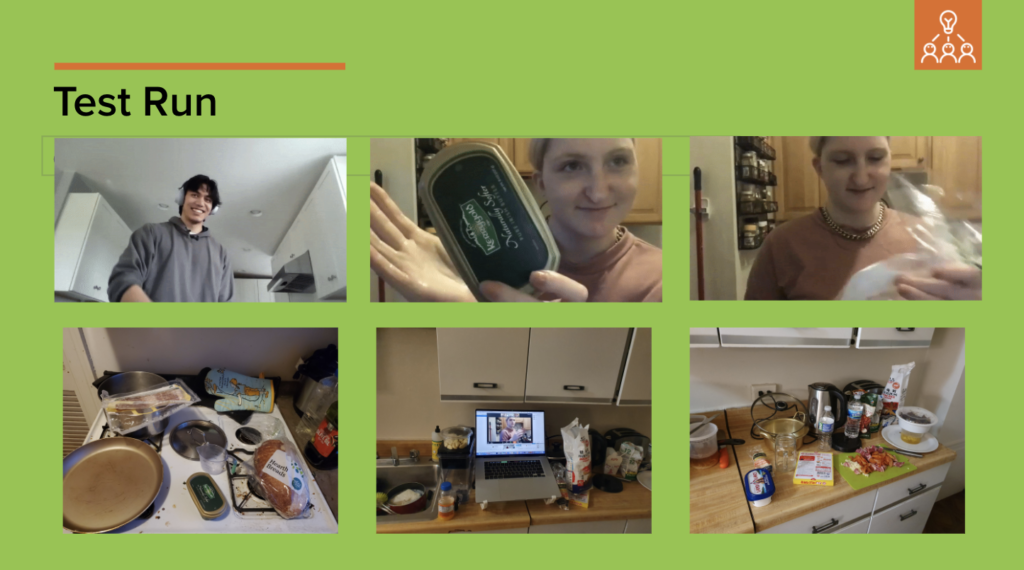
Results/Our Reactions to the Intervention:
Matthew:
- Interacting while cooking was difficult because of maneuvering the camera around
- Allocating a time as a group brought about a sense of obligation
- Less burdensome to cook because it is a given task rather than an option
Tay:
- It was harder to be as involved with each other then what was I initially thought
- The intervention that we designed was personally successful, as I it actually got me to eat at a reasonable time
- The only nonfamilial social interaction of the day – felt more obligated to be there and to try
- Reduced the intentionality of cooking as a necessity, rather more for fun
Em:
- Having other people around made me more aware of the limits of my kitchen and space
- Wonder at camera placement; is it better to see the person or the food, especially knowing most people are working from limited technology?
- An already set recipe reduced the cognitive load that prevents me from starting to cook at a reasonable time
- Wasn’t quite as successful to me because my family had to send me food at their idea of a reasonable time, but also this supports our conclusion that mealtimes depend on social ties and situations
Overall, we found the intervention to be highly successful. We all started eating at much more regulated times during the day, and looked forward to the social interaction aspect. We would recommend people to try and schedule mealtimes out with each other. However, there is always the knowledge that this is an assignment, and that might have pressured us to get together and cook more than just simple social pressure.
